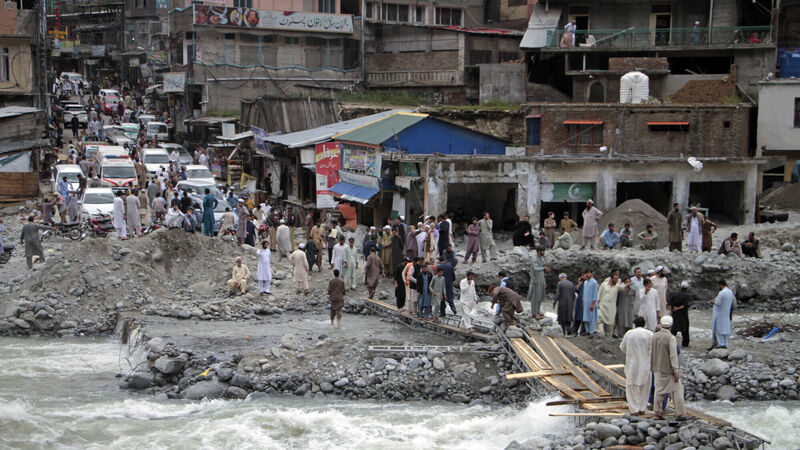Irish Examiner view: We must aid Pakistan in its hour of need

Residents of the city of Bahrain in Pakistan trying to cope with the aftermath of the devastating floods there this week. Picture: Naveed Ali/AP
Every day, the news emerging from Pakistan seems more and more apocalyptic.
The floods in that country are causing damage on a scarcely believable scale and even the briefest descriptions are chilling. The prime minister of Pakistan, Shehbaz Sharif, has described it as the toughest moment in the country’s history, and he isn’t exaggerating.
CLIMATE & SUSTAINABILITY HUB
















